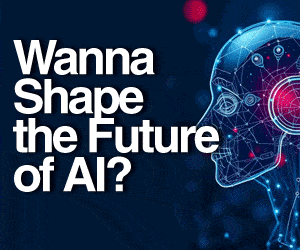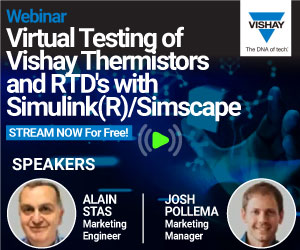In a shocking revelation, a Lancet study published last year stated that the number of people living with diabetes increased fourfold placing the country at the second position with China in the SClead and the United States (US) not far behind. Medical professionals and experts believe that this trend is due to lack of awareness among people and improper and untimely diagnosis of lifestyle disorders that also include hypertension, increased cholesterol levels, along with diabetes.
Experts believe that with early data, application of analytics would lead to accuracy in diagnosing and even [prediction as to whether a person is (or is likely to be) susceptible to lifestyle disorders and even mental illnesses. Our country is not far behind with respect to reporting significantly increased mental disorder cases that have led to a spur in the suicide rates more often than not.
“Big data and analytics play a significant role in measuring and managing healthcare outcomes” stated Raj Popli who is director of healthcare business at Solix Technologies.
This naturally means that smart concepts viz. the Internet of Things (IoT), Big Data, Data Analytics, Artificial Intelligence (AI), Machine Learning (ML), and more could play the role of first-level doctors thereby leading to early diagnosis of lifestyle-related disorders and even mental illnesses whilst taking the burden off the specialists.
Analysing the need for IoT-driven smart concepts in healthcare
With everybody today speaking about IoT, ML and AI in every professional conversation and with the increased hype surrounding these technologies we naturally decided to find out as to why India cannot produce more doctors rather than invest heavily (in fact multi-national corporations today come to India and invest on healthcare driven by smart concepts) on technology.
“We don’t have enough medical colleges and facilities to produce more doctors. We also have lots of regulatory affairs when there is a need to establish new medical colleges to produce the specialists and the super specialists,” believes Ashissh Raichura – founder at Scanbo which is a HealthTech startup. Ashissh closely analyses today’s medical scenario and believes in applying technology for the betterment of modern society.
“Machine learning has been increasingly capable of accurately diagnosing a range of physical and mental health conditions in recent years,” states Bastin Robin who is chief data scientist at Bengaluru-based Hash Research Labs. Bastin works exclusively over IoT-driven solutions.
With big names such as Intel, Solix Technologies, Apollo Hospitals, and more investing on research concerning data-driven healthcare, application of smart concepts is undoubtedly the need of the hour.
Another benefit of data-driven healthcare, and application of smart concepts is the fact that these are making rapid inroads as far as the Indian rural healthcare system is concerned. In fact, IoT, AI, and ML also have what it takes to bridge the doctor – patient ratio that stands at a dismal 1:1681 as of 2016.
Rural Indian economies would reap the maximum benefit of smart healthcare because data generated here is enormous. Behavioural data and test data of patients can be stored on the cloud; this could be in tandem with new wearable hardware that is given to patients for health monitoring; now, it is a known fact that greater the data better the accuracy of diagnosis and detection of disorders (and diseases). With analysed data available in one central location’ doctors and specialists could offer consultation and treatment even remotely thus leading to an enhancement in the overall system.
Developing AI models for timely diagnosis
“Smart systems, if built correctly, could identify an individual’s propensity for a specific disorder and alert the individual,” states Arun Mallavarapu co-founder Bengaluru-based Fedo, a health-tech startup.
IoT engineers and experts in smart concepts believe that the fundamental way of developing a technology-driven mental disorders diagnosis model is to understand the thoughts and impulses of the patient (s) mind. This can potentially be accomplished by analysing three vital aspects viz. tone of voice, word choice, and length of a phrase.
These fundamental aspects can now be subject to deeper analyses via concepts like machine learning and artificial intelligence such that the diagnosis and detection accuracy improves.
Here, Bastin quotes the illustration of a research carried out in 2015 wherein researchers developed an intelligent model to detect schizophrenia among people based on their speech. This involved deployment of speech recognition technology.
“Take a recording from a patient during the appointment via a smartphone or other IoT devices mounted out of sight on a nearby wall. Using the model illustrated above, the product would then search a transcript of the patient’s speech for linguistic clues. The AI would present its findings as a number—like a blood-pressure reading—that a psychiatrist could consider when making a diagnosis,” recommends Bastin.
Engineers can always improve healthcare algorithms to generate more data such that analytics can be effectively run to receive accurate results.
“If a person is regularly sleeping less, getting stressed and adopting lifestyle habits that increase risk of diabetes, cardio-vascular diseases etc, smart systems should be able to capture the information and trigger appropriate alerts,” states Arun.
Exact Diagnosis Schemas
Illustration 1:
Arun believes that any smart healthcare model should be able to track unhealthy living that is on a rapid rise today. Basically, IoT-driven systems should be engineered to detect people’s risk levels of contracting various disorders including lifestyle-related and mental illnesses (Alzheimer’s schizophrenia, depression, and more).
Using smart systems, diagnosis and detection of these disorders can also be accomplished at the patient level after which these are escalated dynamically to concerned specialists for actioning.
“Individuals would then be able to work with their primary care physicians to implement appropriate interventions,” adds Arun.
Yet another illustration of smart diagnosis is a recent research by the University of Texas, USA that employs brain mapping using AI to detect vulnerability to depression. Bastin was generous to throw more light on this case study wherein scientists developed algorithms (with a supercomputer) to find out commonalities in MRI scans, and detect anomalities by analysing data to diagnose depression and anxiety.
“It aims to improve upon previous work by researchers who have studied mental disorders via the relationship between brain function and structure in neuroimaging data.”
Illustration 2:
Ashissh recommends employment of video conferencing to build up history of the patient at the initial level. This could include interaction with the patients ta a personal level.
After the initial stage, lab reports and organs image reports could be interpreted by specialists virtually. Multiple connected healthcare devices would also collect patient data regularly. After these stages, patients can be educated to monitor their vitals at defined intervals to understand bodily progresses quite early. These would undoubtedly lead to a potential ‘smart revolution’ as far as timely diagnosis of different life-threatening disorders are concerned.
“Our aim is to move from sickcare to healthcare,” emphasises Ashissh.
“Finally, we need compact, multiple devices which should be connected all time so that vitals can be measured consistently.”
Both patients and doctors are empowered with IoT, AI, and ML
One associated myth worth busting now is smart concepts replacing doctors.
“All smart systems are probabilistic models, which means that they only provide the probability of a specific occurrence and individuals should always check with physicians to get a deterministic answer. At the end of the day, patients should use these systems to gain information about their health that is otherwise unavailable to them and use this to have a more focused conversation with their doctors,” states Arun.
With smart systems, patients are technologically empowered to detect and diagnose diseases on their own. Doctors and medical professionals can drive accurately vital healthcare decisions. A big benefit that the latter category gets to enjoy is offloading initial decisions and thereby devote more time towards personally attending to patients.
However, the biggest benefit with IoT-driven smart concepts is a win-win situation for both the rural mass and their doctors.
Bastin exudes optimism, “By combining vast amounts of patient data with artificial intelligence, we’re beginning to be able to predict illnesses before they’ve even developed. If machines can see a life-threatening illness before it strikes, this has the potential to save countless lives.”
“Smart systems could make the general ecosystem more proactive by enabling the rural population seek interventions when they start seeing the symptoms.”, believes Arun.
Smart diagnosis models are practically practical in India, three cheers!
Experts, both medical professionals and IoT engineers (and service providers) think that smart concepts in healthcare are truly practical in India.
“We can see the penetration of wearable devices to monitor our health. Now, these devices not only monitor our health but also stores the data in the cloud which is the right source for all these above tasks. So, it is already in the progress,” signs-off Bastin.
“AI, ML for instance could learn from the symptoms, treatments and outcomes of millions of people for a specific condition and provide insights to the treating physician that would otherwise be difficult to predict as an individual.”, states Arun.
“Add to this the realm of possibilities that IoT provides, from preventative care to post-acute care, and we are looking at a whole new healthcare ecosystem that focuses on patient outcomes while reducing overall cost of treatment,” adds Arun.
Finally, what you need to do is, help our government with smart ideas such that our healthcare jumps from developing to world beating.
Major contributors to the story
| Bastin Robin | Chief Data Scientist at Bengaluru-based Hash Research Labs |
| Ashissh Raichura | Founder at Scanbo – Healthcare Concern |
| Arun Mallavarapu | Co-Founder at Bengaluru-based Fedo (a healthcare startup extensively using AI, ML and Natural Language Processing to predict lifestyle diseases) |
| Raj Popli | Director, Healthcare Business, Solix Technologies |
Written by Rahul R, Senior Technical Journalist at EFY.






